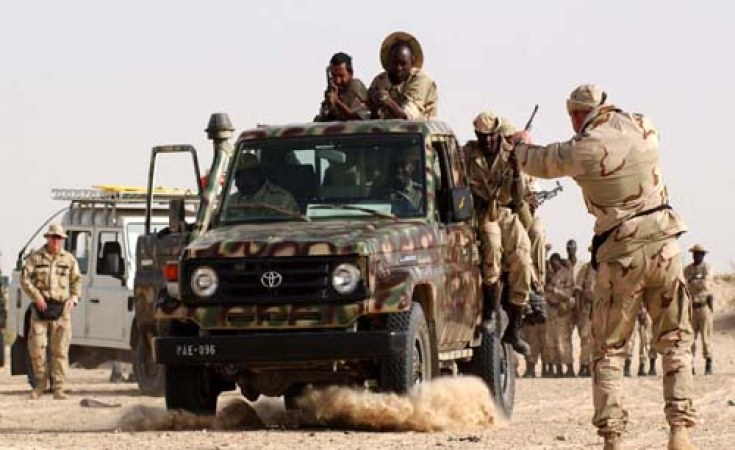After nine years with the European Union Training Mission in Mali (EUTM), Germany has announced its withdrawal. Some 300 German soldiers have so far been involved in training the Malian army, particularly in civil engineering and mine clearance.
This announcement comes amid tension between the Malian junta and Mali's Western partners, mainly due to the postponement of elections and the alleged presence of the private paramilitary group Wagner which has close links to the Kremlin.
Before the Germans, the European Union had already said it will pull out of the mission following a massacre in central Mali which left around 300 dead.
Voting in the German parliament
The German parliament is expected to validate this by the end of May. The German Defense Minister Christine Lambrecht pointed to abuses against civilians and the presence of Wagner mercenaries as the main reasons.
The same reasons led to the end of the EUTM mission in the Central African Republic last year.
The final straw in Mali was the Moura massacre, which the military authorities prevented the UN from investigating.
"Even before the war in Ukraine, reservations about Russian mercenaries were very high in Germany, mainly because of assumptions about the behavior of these troops and their disregard for human rights. Since Russia's attack on Ukraine, any cooperation with Russian forces has become generally unacceptable," said Alexander Stroh, German expert and professor of political science and African studies at the University of Bayreuth.
A support that will be missing?
According to information available on the EUTM website, more than 15,000 Malian soldiers have benefited from this mission. They have learned how to deal with improvised explosive devices, first aid, human rights and international humanitarian law. The end of the mission would mean that the Malian army would be deprived of this support from the European Union.
The director of information and public relations of the Malian army, Colonel Souleymane Dembele, however says that Russia will fill the void. "I tell you that at the level of the Malian armed forces, whether officers or non-commissioned officers, about 80% of them have been trained in Russia since independence. So we do not have to shudder in front of this declaration of the EUTM. For everything that concerns traditional training, we have always had trainers. The Malian army is an old army and it is able to conduct various trainings independently", he said in an interview with Deutshe Welle.
The situation is also closely monitored within the Malian political class. President of the Union for the Safeguard of the Republic (UFR) party and former director of communication at the Ministry of Defense in Mali, Nouhoum Togo says he regrets the sanctions imposed on the Malian junta.
The influence of France
"Everything France says, the others agree to follow it today. Mali is in a very difficult situation where we believe that we need the help of the international community to prevent Mali from sinking", he explains.
According to Nouhoum Togo: "For how many years has EUTM been training soldiers? But in the field we have lost all those who have been trained, which means that there are problems within the training itself. That's why we suggested that in Mali, we have to adapt the training with Malian executives, with Malian specialists so that we can meet the challenge. But if they say they want to leave, we We are sorry but we are obliged to take note of this and Mali will continue its internal training work", assures the Malian politician.
In Germany, the idea that EUTM-trained soldiers may have committed crimes is of great concern. Furthermore, the Sahel expert UIf Laessing considers the EUTM's training mission to be ineffective. The level of the Malian army has changed very little since 2013, unlike the Niger army which receives the same training, he notes.
Translated from Deutshe Welle by allAfrica's Michael Tantoh


